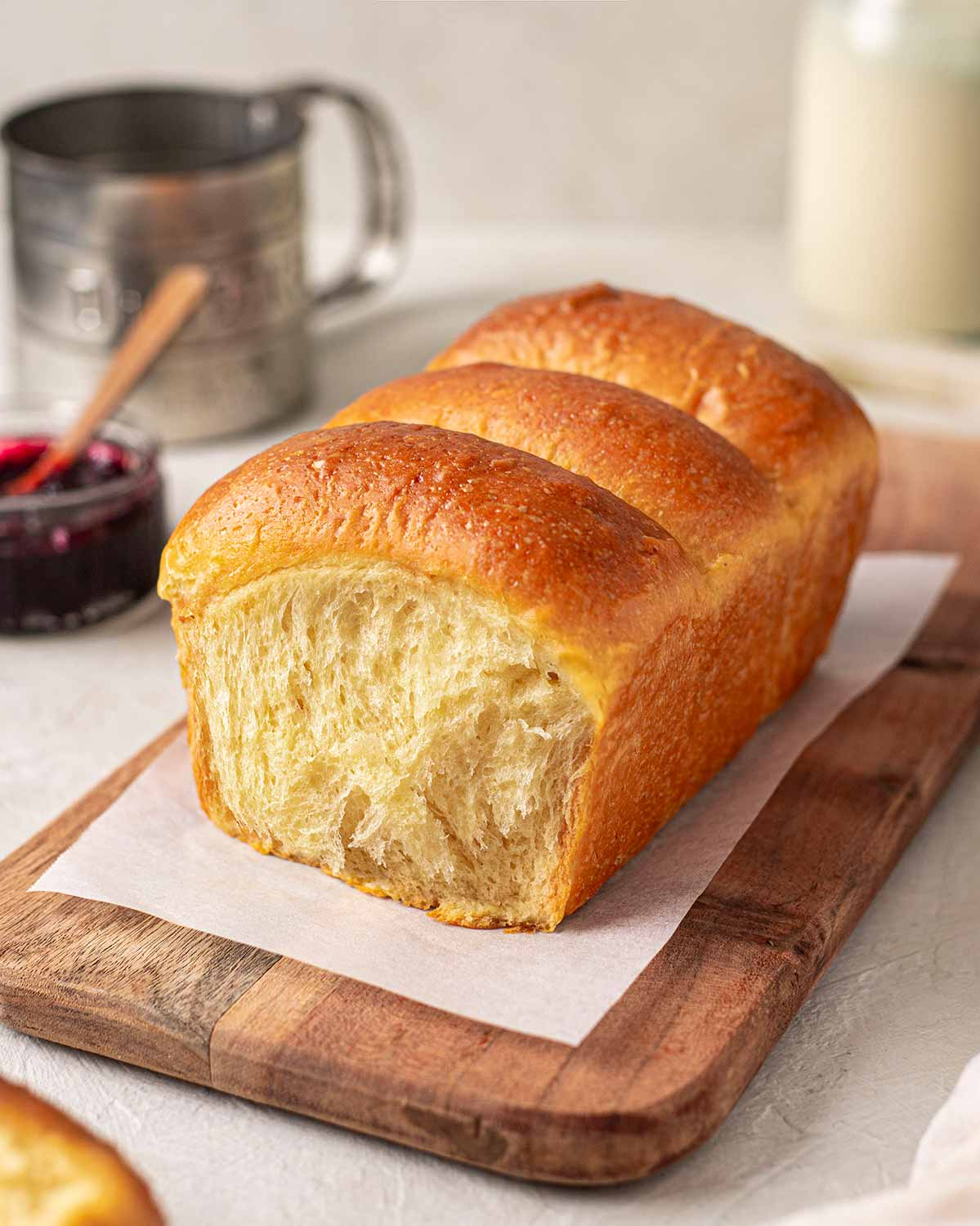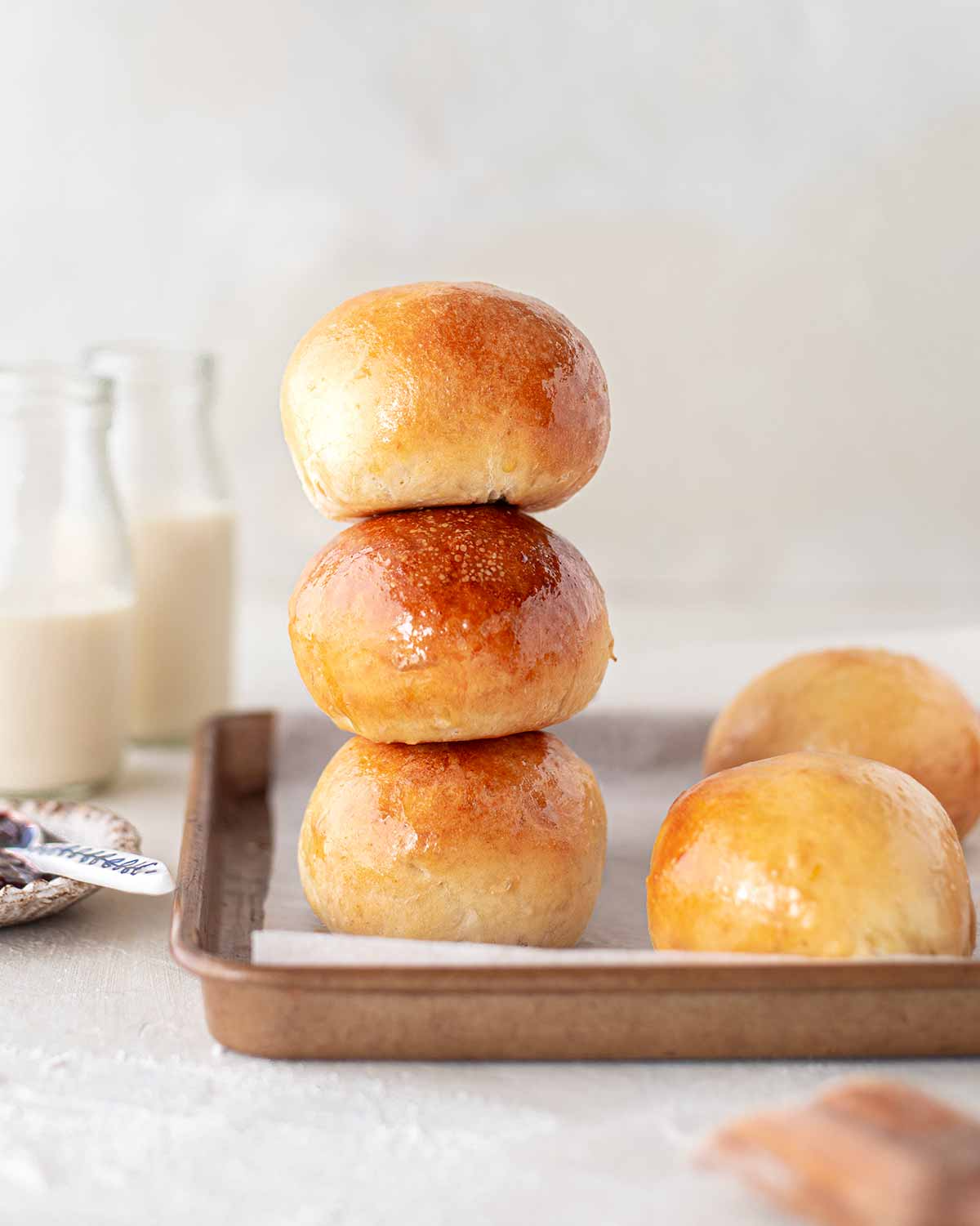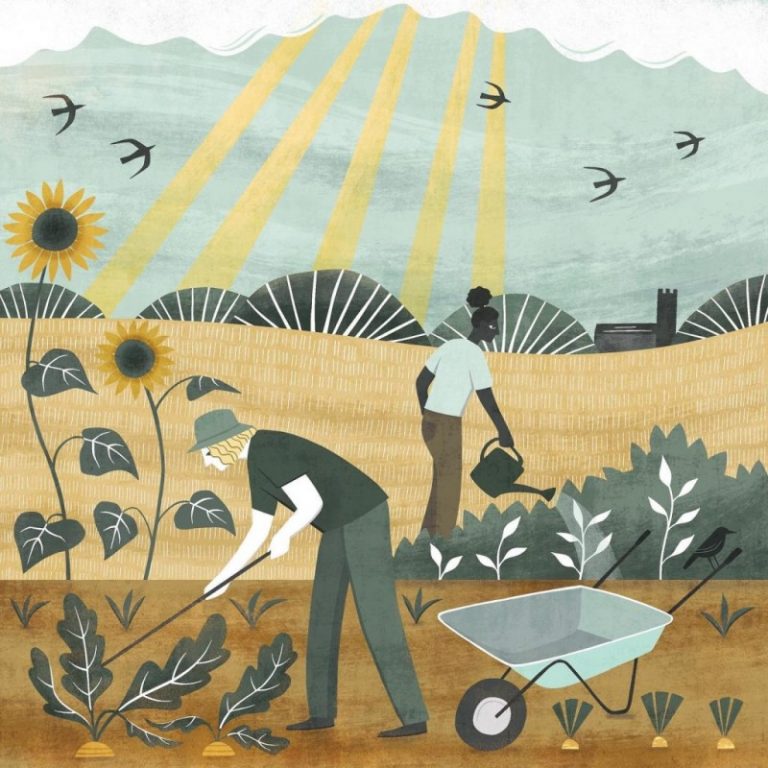
Artisan bakeries are different from large commercial ones in how they make bread and pastries. Instead of mass-producing, they focus on small batches, using time-honoured methods and quality ingredients. This approach creates products with more character and flavour.
More people are interested in these handmade baked goods because they offer a genuine taste experience you don’t often find in big stores. Supporting local artisan bakeries not only brings fresh, tasty treats to your table but also helps your community thrive. Later, we’ll explore the many reasons why choosing these local bakers is a smart choice for your health, tastebuds, and neighbourhood.
The Real Bread Campaign’s Real Loaf Mark lets real bakers display a logo for a small annual fee, to further promote the baking and selling of real bread (includes sourdough loaves). You can also search their website for real independent bakers near you.
Most ‘fresh bakery’ stores in supermarkets are ‘loaf tanning salons’ that buy part-baked bread to heat in ovens. Most also contain palm oil and are wrapped in plastic. Real bread is made with water, flour, salt and yeast.
Keep fresh dough away from young children & pets (also keep bread ingredients like garlic, onion, dried fruit and salt away from pets).
Read more on keeping people & pets safe in the kitchen.
Don’t give leftover stale/mouldy/crusty bread to garden birds or wildfowl (due to salt again, also fat can smear on feathers, affecting waterproofing/insulation.
Real Bread Campaign recently launched a complaint to Trading Standards, as such loaves are not ‘freshly baked in store’.
And are sold in portions bigger than can be used up by small households (leading to bread being one of the top food waste items).
What to Learn from French Boulangaries

In France, real bread is the norm. Bakers get up at 3am or so, and make dough from scratch. In fact, bakers are so important in France that they are not allowed to take holidays at the same time, they must be staggered so everyone can buy good bread.
In England, try to seek out a local bakery or farmers’ market, or try baking your own bread (you can cheat and get a small bread-making machine if you use it often). This mean the bread will be free from chemical improvers and other nasties.
Even if you can’t afford to shop at swanky farm shops, supporting your local indie bakery just once a week with a good loaf of bread makes all the difference.
Cities like New York also have a strong tradition of indie bakeries and cupcake shops, and not just uber-expensive deli bakeries like we have in London.
Brownstone buildings in urban areas often sell home-baked treats, which you can smell early morning, the scents of homemade breads and pastries, wafting through the city air.
Economic Benefits of Supporting Artisan Bakeries
When you choose to buy from local artisan bakeries, you do more than satisfy your craving for fresh bread or pastries. You play a role in strengthening your community’s economy in real, tangible ways. Artisan bakeries often act as economic hubs, connecting people, money, and opportunities. Here’s how your support turns into a positive ripple effect for those around you.
Boosting Local Employment
Artisan bakeries typically operate on a smaller scale than mass producers, but that doesn’t mean they hire less. In fact, they create a variety of jobs within the community. From skilled bakers who knead dough and master fermentation to suppliers who deliver freshly sourced ingredients, every role matters.
- Bakers and apprentices gain a chance to work hands-on with quality products.
- Local suppliers, such as farmers and dairy producers, benefit from steady orders.
- Delivery drivers and shop staff find employment opportunities close to home.
This network of jobs helps keep unemployment low and maintains livelihoods in the area. When these workers earn wages, they spend their income locally, feeding back into the community and creating more demand for goods and services.
Supporting Small Business Owners and Entrepreneurs
Buying from artisan bakeries means backing real people who have taken risks to follow their passion. Many of these bakers run family-owned businesses, passing down recipes and skills through generations. Your purchases give them the capital they need to keep going, innovate, and possibly expand.
Supporting these entrepreneurs encourages:
- Creativity in baking, where unique recipes and methods thrive.
- Independence from big chains, which often have less personal connection to customers.
- Community character, since each bakery reflects the culture of its neighbourhood.
When small bakery owners succeed, they reinvest in their business and staff, keeping the wheel turning. Your money helps sustain these dreamers, not distant shareholders.
Keeping Money Circulating Locally
Money spent in small local businesses tends to stay within the community longer than money spent at large chains. This effect, known as the local multiplier, means that each pound you spend in an artisan bakery supports several other local businesses.
Here’s how it works:
- The bakery buys flour, eggs, and dairy from nearby farms or suppliers.
- Staff members spend their wages at local shops, cafes, or services.
- The bakery pays local taxes that fund community projects like schools and parks.
In fact, studies show that up to 70% of money spent at independent shops remains in the local economy, compared to about 40% at national chains. That extra circulation supports more jobs, services, and projects where you live.
Choosing local artisan bakeries is more than just a matter of taste—it’s a way to invest in the health and future of your community economy.
Quality of Artisan Bakery Products
Choosing artisan bakery products means experiencing a different level of quality and originality compared to mass-produced goods. These local bakeries take time and care to create items that stand out not just in flavour, but also in freshness and character. The quality starts with the ingredients, stretches through the baking process, and ends with the variety of choices available—each element telling a story of craftsmanship and passion.
Use of High-Quality and Natural Ingredients
Artisan bakeries prefer to use fresh, seasonal, and often organic ingredients. Unlike big factories that focus on quantity, these bakers seek out the best raw materials available locally. This can mean flour milled nearby, eggs from free-range farms, or fruits that are ripe and bursting with flavour.
The impact of using these better ingredients is noticeable. Bread and pastries taste richer and more complex. The flavour isn’t masked by artificial additives or preservatives, making the experience more authentic. On top of that, these natural ingredients often come with health benefits. They contain fewer chemicals and provide more nutrients, giving you a treat that feels wholesome rather than processed.
By choosing local, you’re also supporting farmers and suppliers who share this commitment to quality. It’s a cycle of care that you can taste in every bite.
Traditional and Creative Baking Techniques
The heart of artisan baking lies in its techniques. These aren’t rushed or automated processes. Instead, bakers use traditional methods passed down over time, often blending them with creative twists.
Slow fermentation is a prime example. This method allows dough to develop deeper flavours and better texture while improving digestibility. Hand shaping means each loaf or pastry is unique; it’s not just a product of a machine but crafted by skillful hands.
At the same time, artisan bakers don’t shy away from experimenting. They create new flavour combinations by adding herbs, nuts, or exotic spices, turning familiar favourites into something fresh and exciting. These techniques take time but give you a product that tastes like it has a story behind it.
Variety and Customisation
Local artisan bakeries offer a range beyond the usual mass-market choices. You’re likely to find unusual breads, pastries that reflect seasonal trends, or items inspired by different cultures. This variety means you can try something new with every visit.
Custom orders are another advantage. Need a gluten-free loaf or a pastry with less sugar? Many artisan bakers are happy to tailor their products just for you. This personal touch is rare in large chains, where mass production rules out individual preferences.
In short, these bakeries let you explore more flavours and styles, keeping your experience fresh and satisfying. Each visit becomes more than shopping—it becomes a discovery.
Environmental and Social Responsibility
Supporting local artisan bakeries goes beyond enjoying delicious bread and pastries. It also means backing businesses that often take their environmental and social duties seriously. These bakeries understand the value of sustainable choices and community ties. Their approach helps reduce waste, lowers pollution, and connects people in meaningful ways.
Reducing Carbon Footprint through Local Sourcing
Local artisan bakeries tend to source ingredients from suppliers nearby. This simple step has a big effect on cutting down transport emissions. When flour, eggs, and other raw materials don’t have to travel hundreds of miles, the bakery’s overall carbon footprint shrinks markedly. Less transport means fewer fuel burns and lower greenhouse gas emissions.
Additionally, local sourcing tends to reduce the need for excessive packaging. Goods arriving from nearby farms or mills often come with less wrapping or bulky containers. This cuts down on waste that might end up in landfill. By buying close to home, these bakeries contribute to a cleaner environment while supporting local producers.
Sustainable and Ethical Practices
Many artisan bakeries adopt sustainable habits that benefit both the planet and people. Using organic ingredients is common. These grow without synthetic pesticides or fertilisers, protecting soil and water from harmful chemicals.
Reducing food waste is another focus. Bakers often find creative ways to use leftover dough or unsold products, turning them into new items or donating them to those in need. This cuts unnecessary waste and offers support to the community.
On the ethical front, local bakeries tend to treat their workers fairly, providing decent wages and good working conditions. They often operate on a human scale, with more direct oversight and personal care for staff. This stands in contrast to larger factories where employee wellbeing can sometimes be overlooked.
Building Stronger Community Connections
Local artisan bakeries usually play an active role in their neighbourhoods. They often take part in community events such as farmers markets, fairs, and charity fundraisers. This involvement helps bring people together and fosters a sense of belonging.
These bakeries also support local charities by donating baked goods or sponsoring causes. Their physical presence encourages social interaction, becoming a meeting spot where neighbours catch up over a fresh loaf or a coffee and cake. This kind of connection adds to the social fabric of an area, making it friendlier and more vibrant.
By shopping at local artisan bakeries, you help keep these positive cycles alive. You’re not just buying bread, you’re backing a business that cares about the environment and the people around it.
Health Benefits and Transparency
When you pick products from local artisan bakeries, you’re not just choosing flavour and freshness; you’re opting for healthier options with clearer, honest information. Unlike many mass-produced goods that depend on preservatives and chemicals to stay fresh, artisan bakery items often stand out because of their simpler, natural make-up. This means better food for your body and more control over what you eat.
Fewer Preservatives and Additives
Artisan bakery products generally contain fewer artificial ingredients than store-bought alternatives. These bakers prioritise natural components and short ingredient lists, avoiding unnecessary preservatives, colourings, and flavour enhancers. Why does this matter? Additives can sometimes cause digestive discomfort, allergies, or other reactions, especially when consumed regularly.
You’re more likely to find breads and pastries made with simple staples: flour, water, yeast, salt, and natural sweeteners or fats. No hidden chemicals, long ingredient names, or preservatives that extend shelf life at the expense of health. This cleaner approach means:
- Products are easier for your body to digest.
- You avoid unnecessary chemicals linked to health risks.
- Flavour comes naturally from quality ingredients, not artificial boosts.
Smaller batches and quicker turnover mean artisan bakers don’t need to rely on additives to keep items fresh. This approach supports your wellbeing and also means you’re eating something closer to how it would be made in a home kitchen.
Transparency in Ingredients and Nutritional Information
One big advantage of shopping at local artisan bakeries is the clear information you get about what goes into your food. These businesses often share details about ingredient sourcing and nutritional content, giving you the facts to decide what suits your diet best.
Unlike large factories where recipes and production remain a mystery, local bakers are usually open about:
- Where ingredients come from, often local farms or trusted suppliers.
- The absence of artificial fillers or unnecessary sweeteners.
- How items are made, including techniques that affect nutrition like slow fermentation.
This transparency promotes trust and helps you avoid surprises if you have dietary concerns. When you know exactly what’s in your bread or cake, you can make choices that match your lifestyle, whether you’re counting calories, cutting sugar, or prioritising organic.
Many artisan bakeries happily answer questions and even provide ingredient lists for individual products. This level of honest communication isn’t just refreshing — it helps you take charge of your food choices.
Potential Allergy and Dietary Accommodation
Local artisan bakeries often have the flexibility to cater to specific dietary needs, something large-scale producers can struggle to manage. Whether you require gluten-free bread, vegan pastries, or low-sugar options, artisan bakers tend to be more willing and able to tailor products accordingly.
Because they work in smaller batches and stay close to their customers, they can:
- Experiment with alternative flours like buckwheat, almond, or rice.
- Adjust recipes to exclude common allergens such as nuts or dairy.
- Provide clearly labelled options that meet special dietary requirements.
This responsiveness makes local bakeries the ideal places for those with allergies or specific diets. You benefit from products made with care and attention, not just a standard recipe produced en masse.
In short, when you support a local artisan bakery, you favour healthier ingredients, clear information, and personalised options that put your wellbeing first.
Why French People Value Their Boulangeries

A boulangerie is more than a bakery. It is a shop where bread, pastries, and simple lunch items are made on site by trained bakers who follow strict methods. The term is protected in France, and for good reason. These places keep the country fed and connected, with care that shows in every loaf. France counts more than 30,000 boulangeries, and their authenticity is guarded by law.
Whereas in England, big supermarkets sell part-baked bread with improvers, in France boulangeries are so valued, that bakers in the same town, are not allowed to take holidays at the same time!
If making bread, keep fresh dough and other ingredients (dried fruit, spices etc) away from children and pets. Just bin garlic and onion scraps, as acids could harm compost creatures. Read more on food safety for people and pets.
The Role of Boulangeries in France

Vegan Croissant recipe (Rainbow Nourishments)
Bread is not a treat in France, it is part of the day. Most families visit the boulangerie daily for a baguette, a croissant, or a pain au chocolat. The bread often sits in a basket at lunch and dinner.
The routine rests on strict rules. Traditional bread must be made with flour, water, yeast or levain, and salt, with no additives. This approach fits a wider belief in clean food. You taste wheat, not preservatives. The crust crackles, the crumb stays moist, and the bread goes stale the honest way, within a day.
Queues in the morning can feel like a small ceremony. People wait their turn, choose a loaf, share a nod with the baker. It puts a shape on the day and reminds you to slow down. Eating this way often means fewer ultra-processed items and more whole foods. The bread fills you without fuss, and you know where it came from.
Morning Visits That Set the Tone for the Day
Between 7 and 8 AM, the footfall rises. Parents buy bread on the school run, pensioners pick a demi-baguette, and workers grab a coffee and a flaky pastry. Bags fill with warmth. The ritual breeds care and discipline. You buy what you need, you eat it fresh, you return tomorrow.
Stale bread is rare, because baking happens daily. Supermarket loaves often last longer, but they lack that snap and scent. A family might slice the last heel for soup in the evening, then plan the next visit. It is simple and satisfying, like setting the table before anyone sits down.
Never give stale or mouldy bread to garden birds or wildfowl, it could choke or harm. Salt is also toxic, and fat smears on feathers, negatively affecting waterproofing and insulation.
Boulangeries as Sources of Fresh, Wholesome Meals

Easy Tomato Vegan Quiche (Rainbow Nourishments)
Artisan bread supports a balanced diet. Wholemeal loaves offer fibre, sourdough can be easier to digest, and the short ingredient list keeps things clean. Fresh bread pairs well with fruit, vegan cheese, or soup, which keeps meals steady and light.
Boulangeries also feed lunchtime crowds. Tarts, quiches, and baguette sandwiches are fast to buy and honest to eat. The 1993 bread decree protects traditional methods, so when a baguette says tradition, it means it. The result is food that feels close to home, even when you are in a hurry.
Master Bakers and Their Time-Honoured Skills
Apprentices start before dawn, knead by hand, shape with speed, and judge proof by touch and scent. They learn how a crust should sing as it cools and when a crumb looks perfect. Every step trains the eye and the hand. Many bakers come from families who have worked the craft for generations.
French law guards the meaning of the word boulangerie. The dough must be mixed, shaped, and baked on site, and it cannot be frozen at any stage. This rule stops industrial production from wearing a mask of tradition. It keeps quality tied to place and person.
Boulangeries as Community Hubs
Beyond food, boulangeries offer a sense of place. Neighbours meet at the counter, pass on news, and share advice about a recipe. The owner recognises regulars and remembers orders. A few minutes in the queue becomes a daily touchpoint, a small tie that binds.
In small villages, the boulangerie is a landmark and a lifeline. It offers stable work, buys flour from nearby mills, and keeps footfall on the high street. The shop front, with golden loaves in the window, sets a tone for the town. When a boulangerie closes, people feel it, and when a new one opens, the street brightens again.
Boulangeries keep money in the local loop. They hire apprentices, bakers, counter staff, and drivers. Many source flour and butter from regional suppliers, which sustains farms and mills. This web of trade protects know-how and keeps villages alive.
Vegan Brioche Recipes

This Buttery Vegan Brioche (Rainbow Nourishments) only needs 7 ingredients. Or go for the smaller vegan Brioche buns. Flora vegan butter is free from palm oil.






